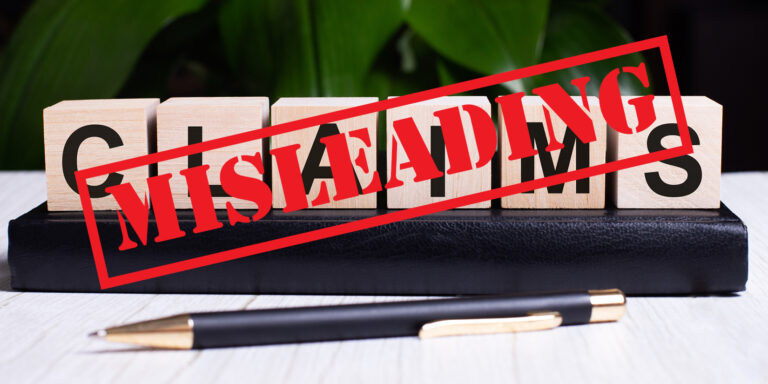Did you know … you are just as accountable for product claims made on your website and social media as you are for claims on your product labels? In fact, there is an additional agency looking over your shoulder for validation of these claims – the Federal Trade Commission (FTC).
As recognized in a Memorandum of Understanding, the FTC, FDA, and USDA share jurisdiction over claims made by food manufacturers, with the FTC assuming primary responsibility for regulating food advertising, the FDA taking primary responsibility for regulating food labeling, and USDA holding authority over labeling of its regulated products.
When assessing a claim, FTC bases its determination of the validity of the claim on Section 5 of the FTC Act which prohibits “unfair or deceptive acts or practices.” For food products, Sections 12 and 15 are also employed which prohibit “any false advertisement” that is “misleading in a material respect.” To further detail these:
- “Unfair or deceptive” advertising is that which contains a representation or omission of fact that is likely to mislead consumers who are acting reasonably under the circumstances. For example, leaving out important information or actively deceiving customers would fall under this.
- “Material aspect” is any part of the content that could be expected to affect a person’s decision to purchase the product. So “misleading” in this regard could be the wording used, graphics posted, or even the alignment of text and graphics that conveys a representation or omission of fact that is likely to mislead consumers – whether express or implied.
In determining if an ad, web content, or social media post crosses the line, the FTC focuses on the ad’s overall net impression.
The warning letters being issued are evidence that the agencies are regularly reviewing companies’ websites and social media for misleading, false or unsubstantiated claims. While dietary supplements are most commonly issued warning letters for health and efficacy claims, food companies are not exempt. Not only have manufacturers received citations and warning letters, food businesses continue to be subject to class action lawsuits. In fact, food and consumer packaged goods have the highest rate of class action lawsuits, and the consumer groups which often prompt the lawsuits will also send their reports to FDA or USDA. All of this can be detrimental to the business’ reputation and bottom line, particularly when resulting in a recall or lawsuit.
One example of a warning letter is that of the sugar/syrup substitute manufacturer which was cited for claims on its website that its product ingredient “may benefit people suffering from obesity, diabetes [and] reduce inflammation … and may also lower the risk of heart disease.” As the warning letter explained, stating that products can be used in the cure, mitigation, treatment, or prevention of disease “establish that the products are drugs” thus causing them to be misbranded.
Another example is that of the juice company that was found by FTC to have deceptively advertised that its products could treat, prevent, or reduce the risk of heart disease, prostate cancer, and erectile dysfunction. FTC issued a cease and desist order, upheld by an appellate court, requiring any future disease treatment and prevention claims to be supported by at least one randomized, well-controlled human clinical trial, and other health benefit claims to be supported by competent and reliable scientific evidence. As stated by the FTC Chairwoman, “The outcome of this case makes clear that [companies] making serious health claims about food and nutritional supplement products must have rigorous scientific evidence to back them up. Consumers deserve no less.”
It is just such substantiation and scientific evidence that is required for product claims. In April 2023, the FTC put hundreds of advertisers on notice that they should avoid deceiving consumers with advertisements that make product claims that cannot be backed up or substantiated. Further, the FTC warned that it “will not hesitate to use its authority to target violators with large civil penalties.”
Under the FTC Act, companies must back up claims about what their product can do with reliable evidence.
- If the claim is about the health or safety benefits of a product, it must be based on scientific evidence.
- If the claim is that the product can cure, mitigate, or treat a serious disease such as cancer or heart disease, it must back up that claim through the accepted standards of scientific testing. Additionally, it is then considered by FDA to be a drug and must undergo all the requirements of such.
In summary, when determining claims you wish to make on a label, website, social media, or other advertising, consider three key determinants:
- Avoid deceiving consumers with advertisements that make product claims that cannot be backed up or substantiated.
- Back up claims about what a product can do with reliable evidence.
- Base health or safety benefit claims on scientific evidence.
- Be very careful not to make a drug claim
And always remember: Neither FDA/USDA nor FTC will hesitate to use its authority to take enforcement action against violations.
If you have questions about the language and claims you are making, or would like to make, give TAG a call. Our experts can support you in navigating this tricky regulatory area.





